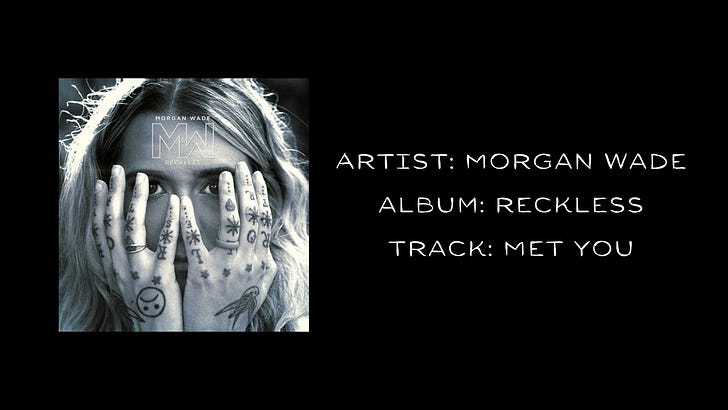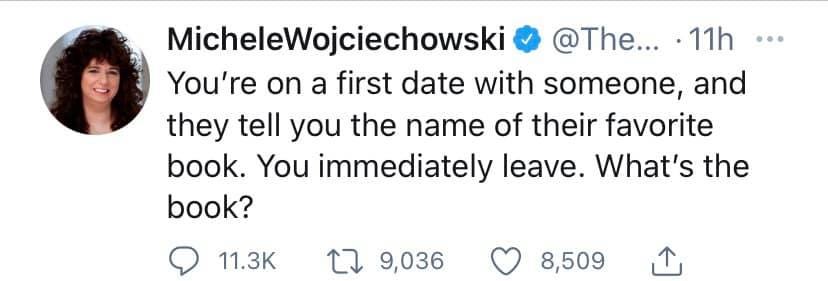This is a public post. I have additional posts every week for subscribers, and if you’re interested and able, I’d welcome your support. Thank you!
In 11 hours, this tweet got more than 11,000 responses.
Humans are inordinately fond of defining themselves by the things they won’t accept. Both morality and taste, particularly in the 2020s, are defined primarily by negations. If you support Donald Trump, unfriend me now! I cannot date someone who still watches Woody Allen movies! If Catcher in the Rye is your favorite book, we have no future together! There’s so much moral satisfaction in declaring all the things you cannot and will not accept; it says so much, we think, about our empathy, our refinement, and the purity of our commitments.
You may remember the folk tale, The Princess and the Pea. As recounted by Hans Christian Andersen, a young woman arrives at the royal castle, claiming to be a princess. The king and queen are looking for a suitable bride for the prince — and they have a test for prospective matches: they invite the young woman to spend the night, then place a pea under the mattress in the bedroom, and then cover it with a dozen additional mattresses. In the morning, the young woman complains of having been unable to sleep, troubled by something hard and stony that has left her covered in bruises. The king and queen rejoice; only a true princess could be so fragile and sensitive as to have been so battered by a single pea. The young woman marries the prince, and they all live — delicately — ever after.
A great deal of social media seems to involve aspiring princesses expressing outrage and injury at the various peas they claim to have encountered. The righteous declare they “simply cannot” with anyone or anything that doesn’t meet their exacting political and aesthetic standards. This is part of why cancel culture is so much fun — the more you claim to abhor, the greater your own virtue. It is white supremacy and misogyny that has coarsened too many of you, so that you cannot feel the pea of injustice, but I am a very sensitive and awakened soul, and oh, how it doth bruise my epidermis and my psyche to feel it!
I had to join in the fun. On Facebook, I posted a screenshot of the tweet above, and announced that anyone who told me that they loved Kahlil Gibran’s “The Prophet” would cause me to abandon our date. It is true I can’t stand Gibran, mostly because I find the poetry laughable, and the insights to be not very insightful at all. (Alan Jacobs has a hilarious poem in response to Gibran’s defenders, and I commend it you.) In the comments beneath my post, some people who did like Gibran were confused and hurt.
Is Gibran bad poetry? I suppose the people who care most about poetry would say yes. As a friend put it, Gibran is the archetypal favorite poet of people who don’t like most poetry. That annoys those of us who do really, really love poetry. We wish that more people read challenging poets like Elizabeth Bishop and Charles Simic, and moved beyond the facile comforts of the Gibrans or Mary Olivers or Rod McKuens.
I do the same thing with country music. I declare my love of the genre, and someone tells me how much they love Florida-Georgia Line (the hugely popular peddlers of rap-influenced “bro country”) and I feel the urge to protest. “That’s not real country! Here, listen to Morgan Wade or Tyler Childers!”
Most of the time, I bite my tongue. No one likes a preacher, and no one likes a snob. People don’t start friendships in the hopes of being lectured about another person’s passions, and they certainly don’t start relationships in the hopes of having their own tastes mocked. Sometimes, though, I give in, and only stop when I see the polite lack of interest in the eyes of whoever the poor soul is I’m lecturing, and I feel shame at my pedantry.
In the culture in which I was raised, it was considered perfectly acceptable to know things, to be interested in things, and to have passions. It was not acceptable to be a bore or a snob. So if one, say, was fascinated by beer and brewed one’s own ales, one should not rant and rave against watered-down corporate lagers. Rather, one was to say, “I see you enjoy Coors Light. I think highly of it myself, but I’m wondering if you might like to try something just a little bolder?” If the person said, “No, thank you” you moved on from the subject.
Or if one was mad for poetry, and someone told you their favorite poet was Gibran, you were to respond with something like, “Oh, he has inspired so many people, hasn’t he? I think if you like Gibran, you might also like Yehuda Amichai. May I send you one of his poems?”
Our enthusiasms are given to us so that we might find ways of adding to other people’s lives. I loved getting students excited about the past, particularly the ones who had previously loathed history. I didn’t shame them for not having a head for dates, or an interest in the ancient human stories. I said, “Look, I’m really excited about this stuff and I have found meaning and purpose in it. I’d love to share a little of my excitement with you, if you don’t mind.” Whatever success I had as a teacher was in no small part due to my own deep excitement about history — and my refusal to judge anyone who didn’t share my passion.
To return to the Hans Christian Andersen story, every one of us is a princess who is hypersensitive to some particular pea. The great mistake is to imagine that our soulmates in life and love can only be those who are bruised by the same provocations, or who share our same literary attunements and political commitments.
The exhausting tragedy of modern life is the sense that virtue (or at least mental health) lies in cutting ties with anyone and everyone whose political, moral, or artistic interests and commitments clash with one’s own. There is a lot to be said for finding a community of people with whom one shares certain affinities. It is nice to not have to constantly explain or defend oneself. And yet, we can and must do better.
Years ago, I dated a woman who did love Kahlil Gibran. She had a quote of his on a poster on her wall: And think not you can direct the course of love, for love, if it finds you worthy, directs your course.
The pompous snob in me rolled his eyes when he saw the quote. The pedant in me wanted to be disappointed that this fascinating woman could consider this insipidity to be profound. And then I looked at this gorgeous girl who said so many interesting things and was so insightful about so much, and I realized that the Gibran quote was exactly what I needed to puncture my own sense of superiority.
It wasn’t that I started liking Gibran’s poetry just because she did. It was because I could see that the words I scorned had impacted this woman’s life in remarkable ways. It wasn’t just that I liked her and therefore could overlook her unfortunate admiration for an overrated Lebanese bard; it was that I liked her and as a result was forced to reassess what I had so cavalierly dismissed. This woman was bruised by different peas, as it were, and I had much to learn from her.
Our passions and our convictions bring us joy and purpose. They also limit us, and they blind us. I can’t stand Gibran, it’s true, just as some of you can’t stand Ayn Rand or J.D. Salinger or David Foster Wallace or Marianne Williamson.
I have a lot to learn from the people who can love what I cannot. Perhaps you do, too.
I wrote this with one song on repeat: Met You, by Morgan Wade. Wade is the darling of Appalachian Americana, and she knows both obsession and good literary references:
Now I ain't trying to ask you to save me
Even I don't like who I've been lately
And I'm well aware that I might not ever find glory
But like Hemingway and Hadley
It's not the end of our story




My mother adored "The Prophet" (I'm sure she never read any other poets). She often referred to his quote, "Your children are not your children. They are the sons and daughters of Life's longing for itself......their souls dwell in the house of tomorrow." Despite her fondness for this quote, she was a typical Jewish mother with a rather suffocating way of loving, yea unto our adulthood. : )